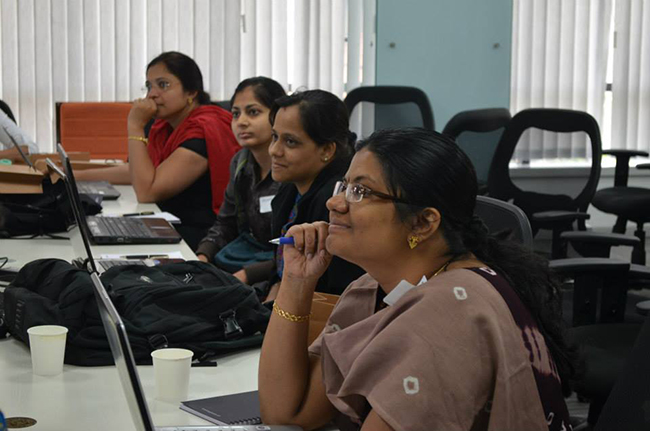
Bringing Technical Women Back to Work
Thoughtworks has always been passionate about diversity, and we realize that the IT industry is not as equitable as it should be. There are several reasons for this, especially when it comes to gender diversity. Different social factors contribute to this imbalance in each country.
When it comes to women enrolling in engineering in India, there is a clear upward trend for the following reasons:
- Science and engineering especially fields like computer science/IT are considered to be ‘feminine’, and more importantly;
- Families actively encourage women to take up engineering as they see such professional degrees either as ‘prestigious’ or as tickets to ‘success’.
Even though on an average India has close to 30%1 female engineering students and there has been a 100% increase in the number of women enrolling for engineering degrees in the last 10 years (Ref: Hindustan Times Article), women often leave the profession once they get married or after they have children. The support system is also seeing a change or break up in parts as we move towards nuclear families in urban areas. We do not have some of the advantages of reliable social structures (e.g. easy commute, flexi times at office, trustable day care centers, etc...) leading to increased attrition as we start having families. It’s mostly women who stay back to look after the family in India; stay-at-home dads are very rare.
Taking a break makes it difficult to come back, especially when you are in the field of software development, where you have to keep yourself abreast of the latest trends in technologies or at the very least continue to be hands on. Even in Thoughtworks India, we see that there is a significant gender gap within the senior developer community and this is nothing but a reflection of our industry.
Vapasi (Vapasi in Hindi means return or comeback) is a small step to address that gap. It’s Thoughtworks India’s initiative to help female IT professionals to get back in the industry. We have started with the set of women who are most affected...the developers.

Our goal is to provide female developers intensive hands-on programming experience in object-oriented programming through a set of classes spread over a few days in February. We hold classes over the weekends so that husbands/partners can be at home to take care of the children or other dependencies at home.
The program is also a platform for women to interact with other women, to learn from each other and the trainers, and to discuss the latest trends in technologies. Towards the end of the program we will direct them to open source projects they can contribute to during their free time so they can remain hands-on until they chose to get back to the industry. In addition, we are also looking at connecting these participants with senior women at Thoughtworks who will be able to guide or mentor them and help them make the transition back to the industry.
Once the women complete the program, they are free to apply to any company they choose. Those who want to transition back into the industry but cannot yet commit to a full-time role can apply to the Thoughtworks internship program. The offer of an internship will consider their performance in the program and their ability to apply object oriented programming concepts. Their technical skills will also be tested through a round of interviews.
Check our events page for similiar programs and to stay tuned for the next edition of Vapasi.
If you are keen to know more about the program or to get in touch with one of the organising members, write to womenintechnology@thoughtworks.com.
1. 30% Women Engineering Students - There were 2,76,806 (Hindustan Times Article) women engineering students in India in 2009-2010. Total Engineering students in 2010, according to Business Standard is 750,000. So thats approx 36% women engineering students. But at top colleges like IIT, NIT, women engineering students are less than 10%. Refer this study and the recent TOI article which says Male to Female Ratio in IIT is 14:1 . This is another challenge altogether.
Disclaimer: The statements and opinions expressed in this article are those of the author(s) and do not necessarily reflect the positions of Thoughtworks.














